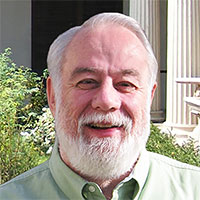The True Value Of The Psychic Pathfinder
 Psychics, mediums, channelers, and prophets have been around as wayshowers or pathfinders since the beginning of time, offering insight, guidance, and predictions to those seeking divine answers to their most pressing questions.
Psychics, mediums, channelers, and prophets have been around as wayshowers or pathfinders since the beginning of time, offering insight, guidance, and predictions to those seeking divine answers to their most pressing questions.
The earliest historical records of people with psychic abilities can be traced back to ancient Egypt, Greece, and China.
One of the most famous psychics of all time was the Oracle of Delphi in ancient Greece. She was a priestess at the Sanctuary of Apollo in Delphi and was known for her ability to channel prophecies. She would enter a trance-like state and utter divine messages and predictions. These prophecies were often sought by kings, generals, and wealthy community leaders seeking guidance or insight.
In ancient Egypt, pharaohs consulted psychic oracles and mediums for advice on matters of state and personal affairs. They also employed soothsayers who practiced various rituals and divination techniques to access divine wisdom and foresight.
In ancient China, divination and psychic practices were deeply embedded in the culture. Oracle bones, inscribed with symbols and used for divination, have been unearthed at ancient sites. Soothsayers, known as fangshi, offered their services to those seeking guidance and insight.
From Fictional Self To Authentic Self
 A new concept that seems to be going around a lot lately in the spiritual community is to be your ‘authentic self.’ But what does this really mean? How do you know who your authentic self is? Heck, you may say, “I’m still trying to find out what my life purpose is, never mind who I truly am!”
A new concept that seems to be going around a lot lately in the spiritual community is to be your ‘authentic self.’ But what does this really mean? How do you know who your authentic self is? Heck, you may say, “I’m still trying to find out what my life purpose is, never mind who I truly am!”
Well, as a result of our education, our upbringing, our family dynamics, our job, and such, when we are asked the question “who are you,” we resort to answers such as: a mom, a dad, engineer, doctor, janitor. We tend to express our identity by what work we do, what credentials we have, and what society or our community has told us to be. We are bombarded by social, political, environmental and family expectations that can overwhelm us in modern life.
On top of this, the world today seems to be in chaos. There is distrust everywhere, and we have to contend with challenges like identity theft and social peer pressure. Yet, we are now also expected to know our authentic self? “God, help me, I don’t have time to look for that! I have the kids to take care of, work deadlines to keep, dinner and laundry to do, and I urgently need to sign up for an exercise program to reduce my weight!”
It is never ending, you say. Your authentic self is somewhere, you just don’t know where and no time to find it. But that is just the point! All these things we are expected to do are there because of the pressure we put on ourselves. As we look through our colored lenses of self-inflicted expectations and the social pressure we have learned from family or peers, we lose touch with who we really are, and what we truly want.
The Mystery Of Past Life Memories
 Reincarnation and past lives continue to captivate the metaphysical community, while skeptics believe it’s mumbo-jumbo. As a certified hypnotherapist who does past live regression work, I am a strong believer in past lives. Based on my experience, I have no doubt that past life phenomena are real. However, what I am not entirely certain of is its true nature and origins.
Reincarnation and past lives continue to captivate the metaphysical community, while skeptics believe it’s mumbo-jumbo. As a certified hypnotherapist who does past live regression work, I am a strong believer in past lives. Based on my experience, I have no doubt that past life phenomena are real. However, what I am not entirely certain of is its true nature and origins.
For example, if I do a past life regression with a client and she recalls the execution of Joan of Arc in 1431, does that mean she was actually present at that event? If so, who was she at that time? Was she the subject, an observer, or an agent. In other words, was she Joan of Arc herself, one of the crowd, or the executioner, clergy, or the British soldier who gave Joan the impromptu crucifix for her to hold?
There is growing evidence in the science of epigenetic inheritance that our genes may have imprinted ancestral patterns, specifically due to the effects of trauma. Researchers have not only found that events in someone’s lifetime can change the way their DNA is expressed, but this change can potentially be passed on to future generations. Evidence for this has been found linked to traumatic events like famines, wars and genocides.
It is therefore possible that my regression client is not seeing events from her own past life, but instead an imprint from her ancestry. It could be that she did not experience the event herself, but that she is merely consciously recalling an unconscious imprint of a traumatic event one of her ancestors had experienced.
Interestingly, most past life memories tend to be of violent deaths. Young children between two to five years old especially seem to remember such past life deaths. Some also have recurring dreams of the tragic events. There have been many cases reported where further investigation confirmed the historic facts of the child’s unusual memories.
Never Allow Regret To Hold You Back
 Recently, I attended a celebration of life gathering held in memory of a friend who died under tragic circumstances. He was an incredible energy healer, and also exquisitely crafted Native American flutes and drums. We had been friends for decades, but over the years we saw less and less of each other. The relationship between us was, however, a matter of ‘out of sight, out of mind.’
Recently, I attended a celebration of life gathering held in memory of a friend who died under tragic circumstances. He was an incredible energy healer, and also exquisitely crafted Native American flutes and drums. We had been friends for decades, but over the years we saw less and less of each other. The relationship between us was, however, a matter of ‘out of sight, out of mind.’
Our individual schedules were such that life eventually got in the way. There was however an unmistakable mutual respect and heart-centered connection between us facilitated by Spirit whenever we did meet. We would offer each other guidance, support, and fresh perspectives in those special moments.
My friend and his wife met about two decades ago at a spiritual event and eventually became an incredible spiritual team. Before they met, I remember his future wife asking me to swap readings with her.
“Sure, why not?” I said, although I was actually quite nervous and still new to doing readings on a ‘professional basis.’
When I read for her, the information that came through included various confirmations regarding her spiritual work, including her music, becoming an author, teaching, and her increased spirit connection. Last, but not least, there was also the indication of a potential romantic relationship, including a timeframe for approximately when this might unfold. Soon after, the two of them met. Over the years, it was great to see their relationship blossom and thrive. They truly became partners in life, love, and business.
Surrendering Your Free Will To Divine Intervention
 To have free will means to have choices, to act at your own discretion. Choices in what? Well, in everything. From eating ice cream for breakfast, to establishing a humanitarian mission to support the homeless.
To have free will means to have choices, to act at your own discretion. Choices in what? Well, in everything. From eating ice cream for breakfast, to establishing a humanitarian mission to support the homeless.
The ice cream is a simple choice, while the non-profit requires significant planning, a vision, a passion and purpose, as well as personal sacrifices, effort and action.
But both will have consequences. Eating deserts for breakfast may lead to weight gain and even long-term health problems. Helping the homeless will make the world a better, safer and happier place.
Between these two extreme examples, there are a myriad of life paths, choices, decisions, options, and potential experiences. It is what we call life and relationships. In all these possibilities the power of free will always exists.
You also have the free will choice in life of taking things too personally, being too controlling or demanding, being lazy or discontented, playing the victim…or living your life with courage, joy and gratitude.
One of the most prevalent challenges many people is their unwillingness to accept the principles of co-creation. To live a happier, more peaceful life we have to accept that just because we have free will in our own life choices, the world we live in is a co-creation. We do not only choose for ourselves, but we also choose everyday along with others. Every day is an act of co-creation. And not everyone always chooses the same things. We must learn to accept this.
Go with the flow? Never, you might say, I need to be always in control. I call the shots! The paradigm shift of realizing that I am spirit in a physical body is what changed it for me. Consider what your life might look like today had you more often simply trusted the Divine, Universe, God, Creator, Spirit, Source to let things unfold for the greater good, at the right time and in the right way? Well, it’s never too late to try. The results just might surprise you.
Work Through The Fear, Obligation And Guilt (FOG)
 Reflecting on my life I have found how many of my early life experiences have subconsciously influenced me, mostly due to a lack of awareness that allowed fear, a sense of obligation and guilt to remain hidden.
Reflecting on my life I have found how many of my early life experiences have subconsciously influenced me, mostly due to a lack of awareness that allowed fear, a sense of obligation and guilt to remain hidden.
These hidden influences mostly come from my formative years and became obstacles I had to repeatedly struggle with in my adult life with regards relationships, career, finances, family and community.
Once I discovered these non-empowering beliefs, it was time for me to get out of the FOG (Fear, Obligation, Guilt). In hindsight, several things I was unaware of in my family’s dynamics, were actually ‘seeds’ hidden beneath the surface that in time sprouted into personal challenges and self-sabotage.
Fear
Fear and insecurity are frequent visitors for many of us in all areas of life. I was constantly focused on the negative and worst-case scenarios. This is because our brain is wired this way for the purpose of survival. Much of it also depends on our upbringing. So, we must recognize this and catch ourselves early on, in order to shift our thoughts and emotions in a positive direction.
We must be cognitive of our behaviors and explore where in our life we have learned these negative, fear-based responses. Fear is a natural part of life, but can easily become a ‘whack-a-mole’ of frustration, anxiety, uncertainty and indecision, always showing up at the most inconvenient times.
Now Is The Time To Invest In Yourself
 Throughout our childhood, we receive advice from family and teachers on how we should succeed in life. Study hard. Get good grades. Go to college for a quality career. Get married and have a family. Buy the dream home. Financial success and prosperity. Provide for your family. Send your kids to college. Become proud grandparents.
Throughout our childhood, we receive advice from family and teachers on how we should succeed in life. Study hard. Get good grades. Go to college for a quality career. Get married and have a family. Buy the dream home. Financial success and prosperity. Provide for your family. Send your kids to college. Become proud grandparents.
In reality, our real life experiences can throw us major curve balls, and impact what we envision as our dream future. In the same vein, life experiences create magnificent opportunities. Well-meaning guidance and suggestions from family and friends is beneficial. It is to be part of our consideration. It can give us goals, and affirm what we know about ourselves.
Careers can include being of service. A social worker, doctor, nurse, lawyer, first-responder, accountant, veterinarian, military, waitperson. A career in science. A researcher, chemist, biologist, architect, engineering. A career in entertainment. An artist, musician, dancer, playwright, author, actor, composer.
The career you choose is, however, to be one that nurture’s your heart as a priority. It should give you a feeling of passion and purpose, rather than financial security. Financial security is a goal one needs to have a degree of focus upon. We do need money to pay our bills, to support our family and lifestyle, to finance our dreams. Money being ‘the root of all evil’ is a fallacy. Money is a form of energy exchange. It has no judgment. It can influence or impede financial security. It is what you do with it that matters. But financial security is often temporary and based on your decisions and emotions.
Enter into your career choice with enthusiasm, passion, and a zest for knowledge. It may turn out that your career changes as you grow older. Jobs will definitely change through the years. You may be an individual who says, “Money does not matter or drive me.” This is a learned, mental paradigm picked up from your upbringing and childhood environment. Change it. Start thinking of how you can use financial security to benefit others.
